Florida Condo Crisis:
New Law Threatens Real Estate Market?
Today, we’re diving into a critical issue that’s making waves in Florida’s real estate market—specifically, the escalating condo crisis that could reshape the state’s housing landscape and potentially affect markets nationwide. This situation stems from new regulations that have been introduced to ensure the safety and integrity of aging condominium buildings. However, these regulations may have far-reaching consequences that could leave many residents and property owners in a precarious position. Let’s explore how we got here, what these regulations entail, and the potential fallout for Florida’s condo owners.
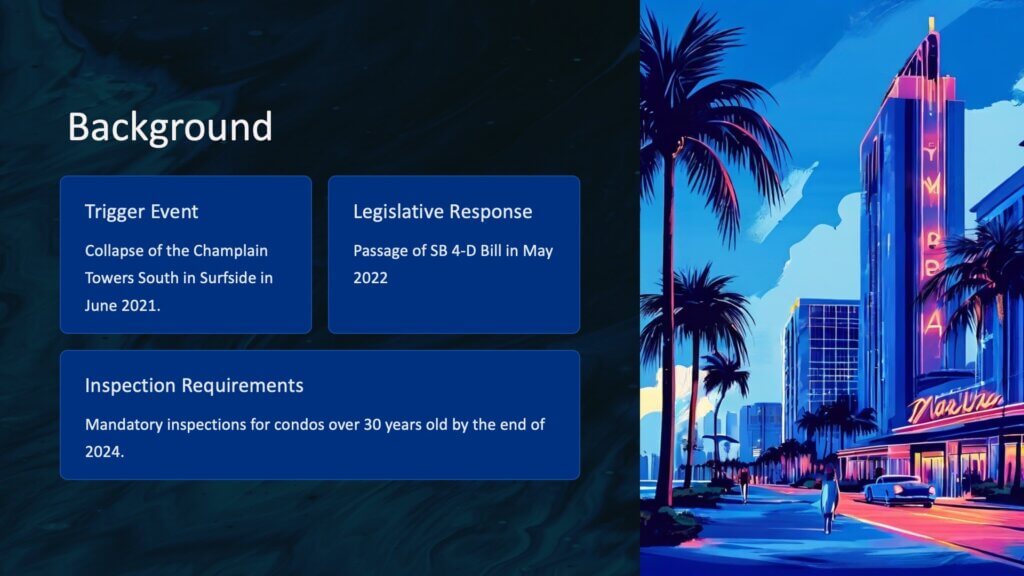
The current crisis traces back to a tragic event that shook Florida and the entire nation—the collapse of the 12-story Champlain Towers South condo in Surfside on June 24, 2021. This disaster, which claimed 98 lives, was later attributed to structural flaws and design deficiencies that had gone unaddressed for far too long. In response, the Florida Legislature passed the SB 4-D Bill in May 2022, aiming to prevent such tragedies from occurring again.
The new regulations require that all Florida condos over three stories tall and older than 30 years undergo a mandatory inspection by the end of 2024. These inspections must be carried out by a licensed architect or engineer, and if any signs of “substantial structural deterioration” are found, a more in-depth follow-up inspection is mandated. If no issues are detected, the next inspection is scheduled 10 years later, and this cycle continues. The law also stipulates that any necessary repairs identified must begin within a year, or the building may be deemed unsafe for occupancy.
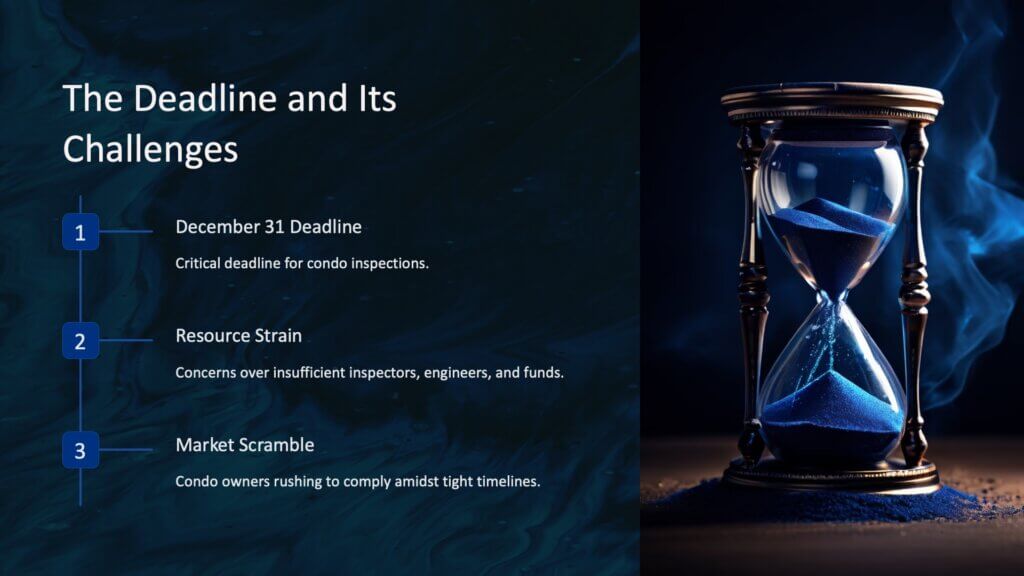
The looming December 31 deadline has sent shockwaves through the condo market, particularly in areas like Miami-Dade, Broward, and Palm Beach counties, where a significant number of condo buildings are over 30 years old. With so many properties requiring inspections and potential repairs, there’s a growing concern that the available resources—inspectors, engineers, and funds—are insufficient to meet the demand. This has led many to criticize the deadline as “arbitrary” and impractical, leaving condo owners scrambling to comply.
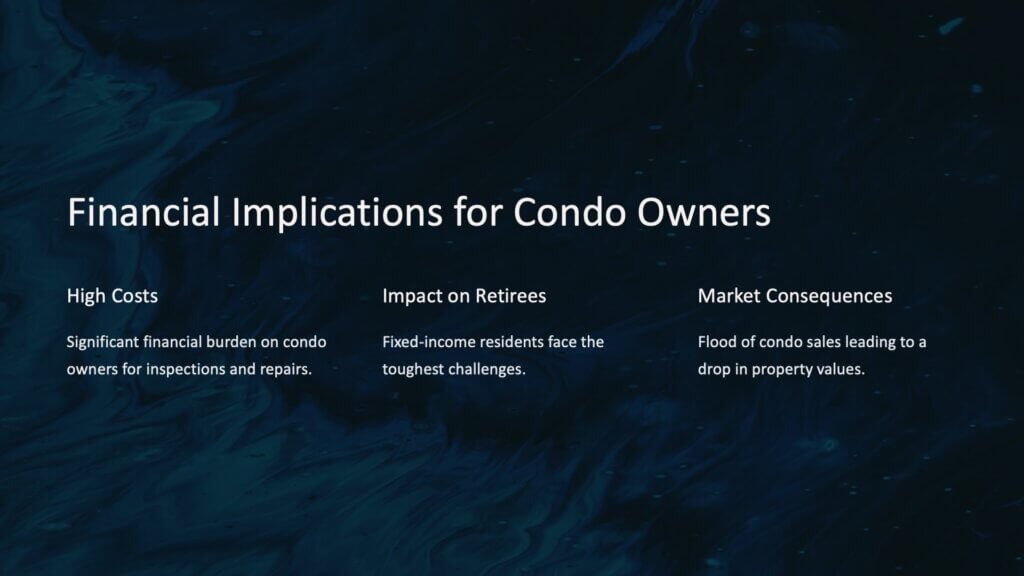
The financial implications of these regulations are daunting, especially for retirees and residents on fixed incomes. The costs associated with mandatory inspections, repairs, and the need to meet new reserve fund requirements are expected to be substantial. Condo associations, already under pressure, must now prove they have the financial resources to address any issues that arise. Failure to do so could lead to enforcement actions, including the potential for buildings to be declared uninhabitable.
For many condo owners, the financial burden is simply too much to bear. Faced with the prospect of costly repairs and increased fees, thousands are choosing to sell their properties before the new regulations take effect. However, the market is flooded with aging condos, and buyers are wary of properties that may come with hefty special assessments or repair costs. This has created a glut of unsold units and driven down property values, particularly for older buildings.
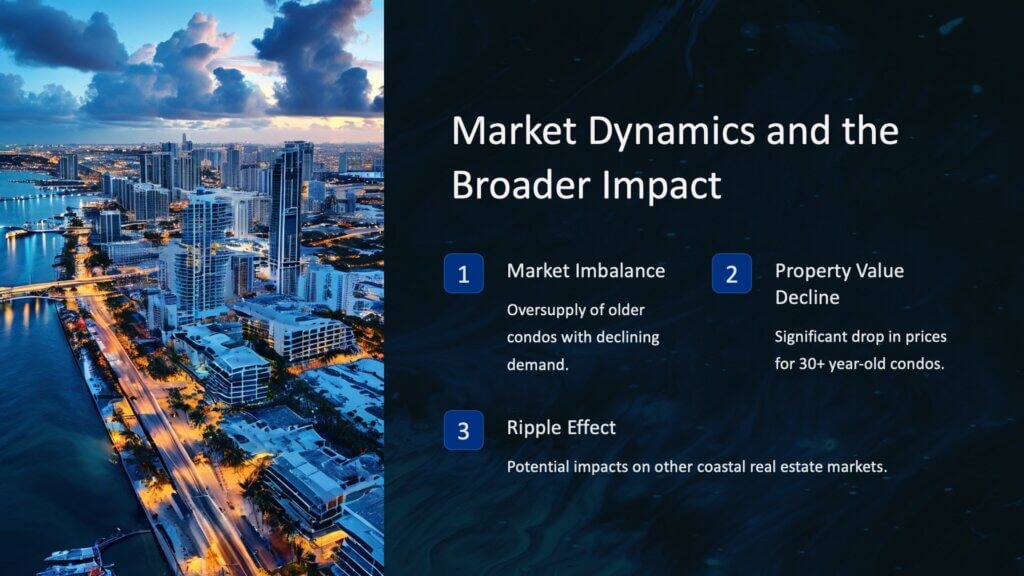
According to recent reports, about 90% of active condo listings in Miami are for units that are more than 30 years old. This has led to a significant market imbalance, with an oversupply of older condos and a lack of demand from buyers. Many potential buyers are explicitly avoiding properties that might be subject to special assessments or expensive renovations, further complicating the situation for sellers.
The average sales price for 30-year-old condos has dropped significantly—by as much as 20% since 2023. In contrast, newer condos have seen price appreciation, highlighting the stark divide in the market. This trend is not just a local issue; experts warn that it could have ripple effects across other coastal markets in the U.S., where aging condo buildings are also common.
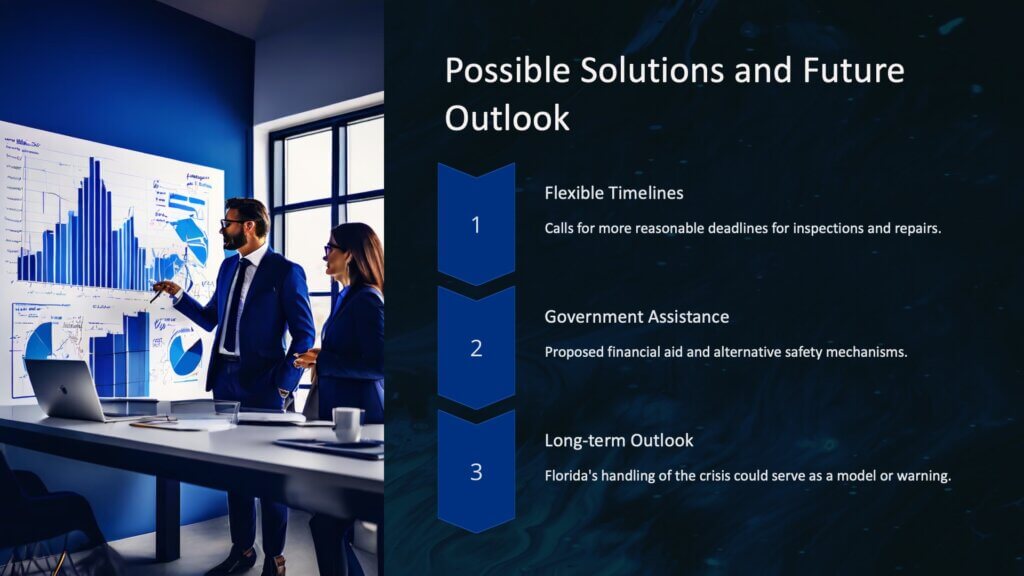
The question now is how to address this growing crisis without pushing condo owners to the brink of financial ruin. Some have called for more flexible timelines for inspections and repairs, arguing that the current deadlines are unrealistic. Others suggest alternative mechanisms to ensure building safety, such as targeted financial assistance or phased implementation of the new regulations.
Whatever the solution, it’s clear that Florida is at the forefront of a significant challenge that could reshape its real estate market for years to come. The state’s approach to managing this issue will likely serve as a model—or a cautionary tale—for other regions facing similar challenges with aging infrastructure.
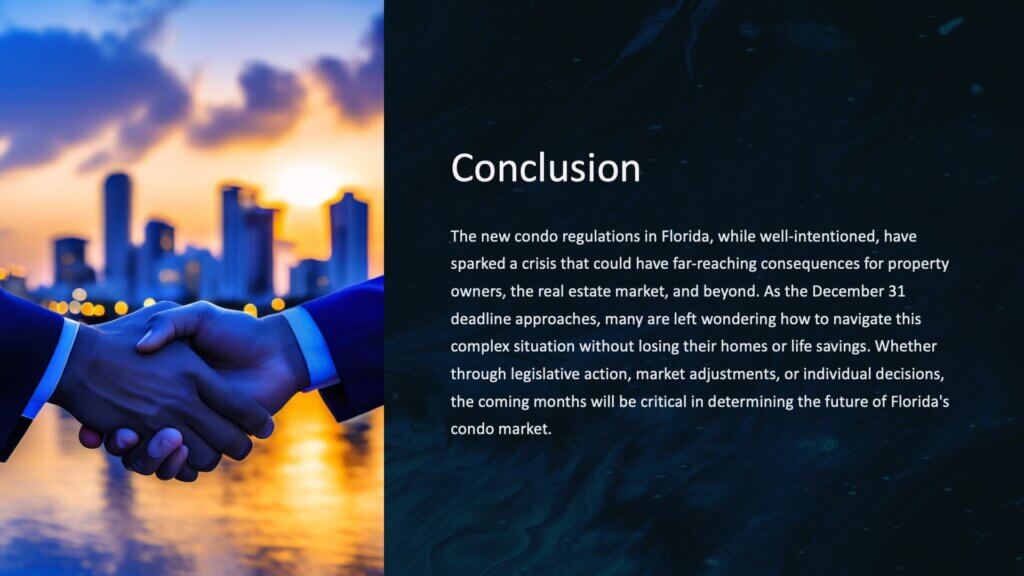
In conclusion, the new condo regulations in Florida, while well-intentioned, have sparked a crisis that could have far-reaching consequences for property owners, the real estate market, and beyond. As the December 31 deadline approaches, many are left wondering how to navigate this complex situation without losing their homes or life savings. Whether through legislative action, market adjustments, or individual decisions, the coming months will be critical in determining the future of Florida’s condo market.
Leave a comment
Sign in to post your comment or sign-up if you don't have any account.